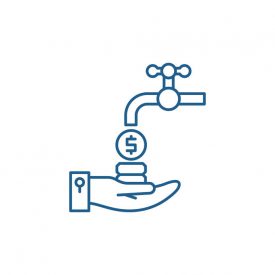
Many companies are experiencing significantly lower revenues brought by the COVID-19 pandemic. This makes maximising cash flowing into a business even more crucial. The most commonly known measure for improving cash flow is via shorter payment terms. However, there are numerous approaches that companies may consider and we look at some of these in this newsletter.
Amongst these measures is companies reviewing their standard customer contracts, to ensure that their terms do not encourage payment delays or non-payment. Where supply contracts are on “customer paper”, the practical methods below may also prove helpful.
Improving Contractual Terms:
- Giving upfront discounts for cash in advance payments, to encourage customers to pay earlier instead of waiting for the due date of the payment.
- Charging compounded interest on late payments, accruing from the due date until the date of actual payment. Since compounded interest can dramatically increase the amount payable by the customer, including such a provision in the contract can encourage customers to be more conscientious with their payment obligations.
- Including a clause passing on enforcement costs to the customer, including legal collection costs on an indemnity basis, in order to discourage customers from breaching their payment obligations under the contract.
- Requiring an upfront deposit, phased payment or costs on account to minimise chances of payment default by the customer.
- Shortening payment terms or net days. For example, setting out that payment terms are strictly 30 days.
- Setting out that payment terms run from the date of invoice, not from any other later date such as date of receipt of invoice.
Other Practical Steps:
- Ensuring an Accounts Receivable (AR) process is put in place and having an AR point person with responsibility for a customer invoice.
- Establishing a positive relationship with customer Accounts Payable (AP) Departments.
- A tried and tested AR process is to be in constant communication with customers – send your invoices promptly, request acknowledgement of receipt of invoice and consistently follow up payment if invoice becomes overdue.
- Communicate via email but also telephone regularly. Remember the age old adage, “the squeaky wheel gets the oil” !
- Investigate whether the customer has signed up to any voluntary business codes where payment terms are fixed.
- If debtor days for a particular customer blow out significantly, with no reason given, consider issuing a statutory demands to apply further pressure to pay. In many countries failure to satisfy a statutory demand creates a presumption of insolvency and potentially exposes companies to insolvency procedures.
When practical cash collection processes are implemented along with robust terms of business, companies should be able to generate a steady cash flow even during the COVID-19 crisis.

